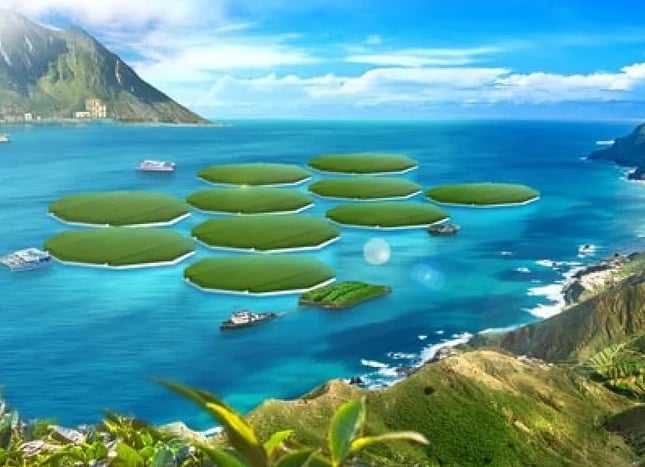November 28, 2025 | 04:51 GMT +7
November 28, 2025 | 04:51 GMT +7
Hotline: 0913.378.918
November 28, 2025 | 04:51 GMT +7
Hotline: 0913.378.918

Alora aims to have their first ocean-based site deployed in just over a year.
Salt-tolerant rice plants that can be grown directly upon the surface of the ocean may provide a solution to rising sea levels and salinisation of agricultural land, according to Alora, an agriculture start-up which has announced plans for a global network of ocean rice farms.
Since 2019, the founders of the Canada-based agriculture start-up Alora, Rory Hornby and Luke Young, have aimed to utilise genetic engineering to radically alter the way that terrestrial crops can be grown.
By “switching on” the salinity tolerance of terrestrial crop species such as rice, the team at Alora aim to tackle world hunger whilst minimising the use of freshwater during the production phase. Additionally, the company aims to eliminate the methane emissions associated with traditional rice-farming techniques by growing rice in salt-water, which inhibits the growth of methane-emitting bacteria.
“We reactivate that dormant salt tolerance. So these plants can thrive, whether that's floating on the ocean surface, or in soils that have been irrigated or affected by soil level, or saltwater, either through sea-level rise, climate change or overuse of fertilizers,” explained Hornby, chief sustainability officer at Alora, in an interview with SustainableBiz, a Canada-based news platform.
Using this technology, Alora have managed to modify rice plants to be salt-tolerant up to conditions of 16 grams of salt per litre of water, despite traditional rice crops being listed as extremely sensitive to salinity. Alora aims to increase this salinity tolerance even further, up to 24 grams per litre by the end of the year.
Alora is currently in the midst of a pilot project in Singapore, trying to further increase the salt tolerance of their rice crops in addition to testing a structure that would facilitate the growing of the crop directly on the ocean surface.
With plans to have their first full farm site deployed and operational in just over a year, Alora is aiming to take the concept to a global scale by 2026, listing Kenya, Namibia, Madagascar, India and the United States as potential locations for ocean rice-fields.
Furthering the start-up’s aims for sustainable agriculture, Luke Young, co-founder at Alora commented on his hopes for the development of the project.
“Starting from about 2025 onwards, we'll start to look into attaching different technologies to these farms at the same time. So renewable energy sources, solar panels, for example, or tidal waves or actual wave energy generation systems,” he said, in comment to SustainableBiz.
(thefishsite)

(VAN) A new study reveals how the simultaneous effects of ocean acidification, salinity and loss of oxygen are making the world more fragile.

(VAN) Hopes are growing that the creation of the first 3D turkey gut model could be a turning point in the battle against the virulent blackhead disease.

(VAN) Tyson, America’s biggest meat supplier, plans to shutter one of its largest beef processing plants as the industry continues to struggle with low cattle supplies and political pressure from Washington.

(VAN) New FAO study shows how digital solutions are empowering farmers and fishers to prevent losses and build resilient agrifood systems.

(VAN) Brazil's COP30 presidency pushed through a compromise climate deal on Saturday that would boost finance for poor nations coping with global warming but that omitted any mention of the fossil fuels driving it.

(VAN) Poultry farmers in the UK have been warned that they could face one of the worst winters yet for bird flu.

(VAN) Prices of main-crop paddy have risen sharply, with jasmine rice hitting 16,100 baht per tonne — the highest level in years.